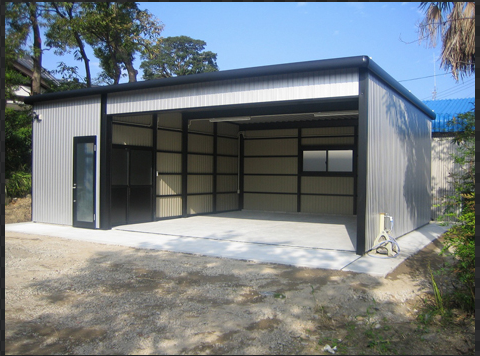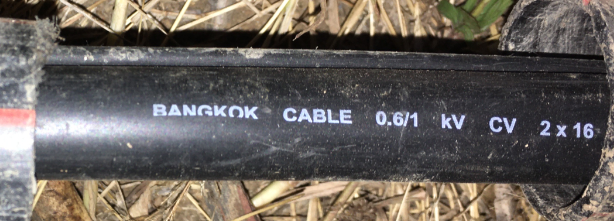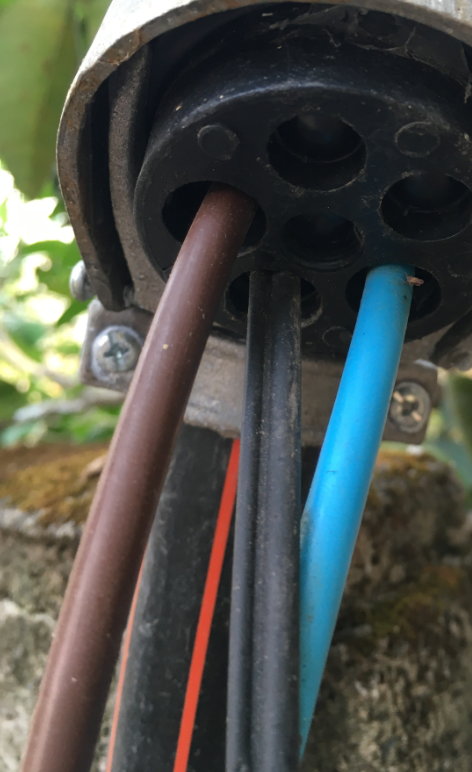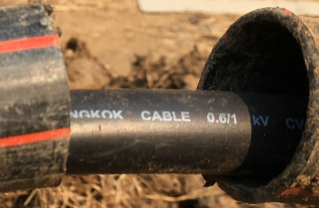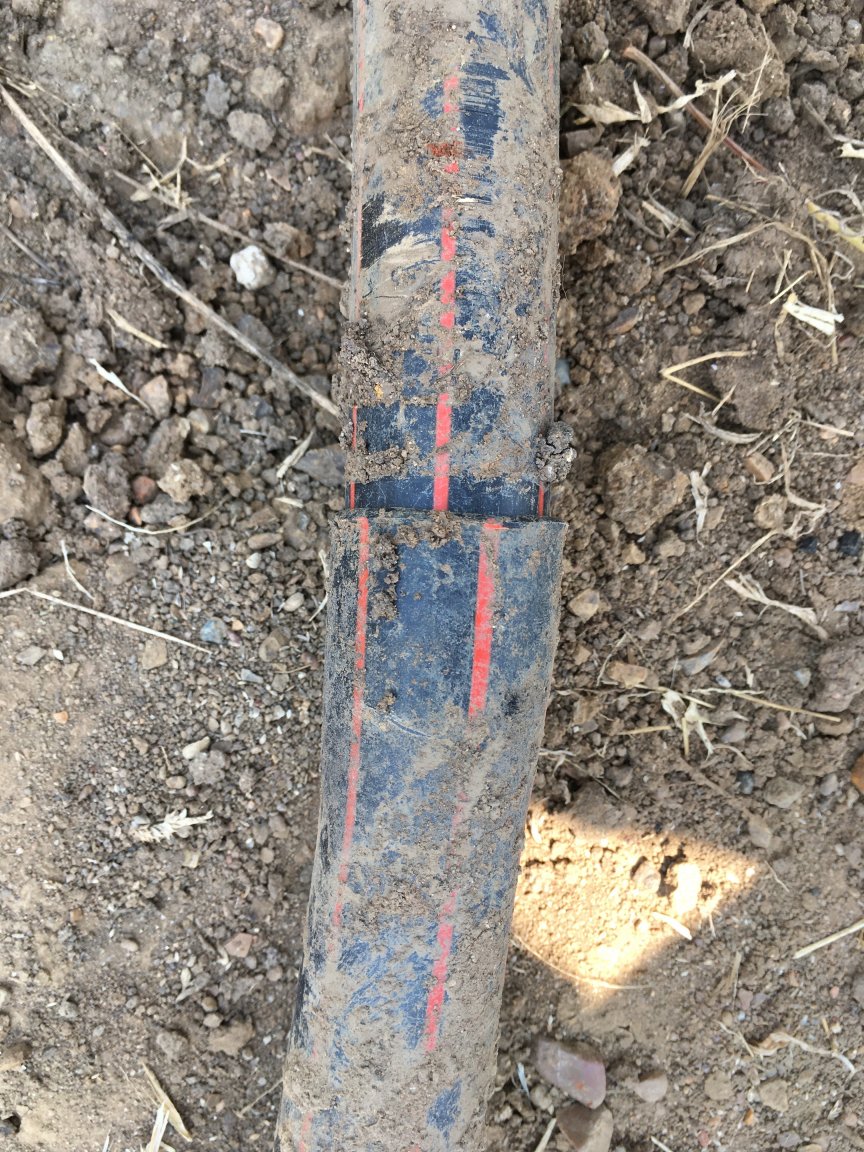
unheard
Advanced Member-
Posts
1,244 -
Joined
-
Last visited
Content Type
Events
Forums
Downloads
Quizzes
Gallery
Blogs
Everything posted by unheard
-
The idea behind insulated wall and roof panels is to prevent heat transmission. The South wall will be exposed to the Sun during all winter months and parts of the fall and spring. The West side - all year around. Un-insulated, fully exposed to Sunlight metal will re-radiate tremendous amounts of thermal energy towards anything parked/placed in the immediate area.
-
I'm about to build a new carport, located in close proximity to the house (might be attached to the house by its roof). Consider installing solar on top of it at some time in the not so distant future. I don't know much about solar. May I get some basic advice based on the forum members' experiences on what can make the future solar install easier? Is there anything about carport designs that can make them solar friendly, other than their roof orientation? Does the roof structure need to be re-enforced to accommodate the panel weight? Are they real heavy? Anything about requirements for solar equipment placement? How much room does it take by itself? Does the equipment need to be cooled during the hot weather time? Ventilation requirements? etc., etc. The proposed carport will have two parking spaces. A single slope, metal roof will be facing West. I consider using PU insulated metal sheets, both for the roof and shed walls. It will have a shed/storage room and look similar to this. Thank you!
-
How about a metal roof on a fully wooden house. What would be the most likely end-effect of a direct-on-the-roof lightning strike in that situation?
-
Assuming you have concrete roof tiles... Would a metal roof make a difference in the same kind of a situation, on the same type of the house construction? Do the underground portions of rebar in concrete piles/footings have to be exposed in some way, instead of being fully encapsulated in concrete, in order to provide enough of electrical connection to drain off lightning current?
-
My understanding that it's not the structural steel work that creaks, but the roof sheets themselves rubbing against each other or against the structural steel underneath. The daily thermal steel expansion/contraction cycle produces some sheet movement. But it's not a guaranteed thing to get much creaking to start with - will lastly depend on the roof's geometry, overall construction quality, number of attachment points, length and number of sheets, their thickness, etc, etc. Besides with that amount of insulation you shouldn't really hear much at all. The initial morning/evening creaking sounds if initially present should become less frequent or even go away with time as the roof settles.
-
Proper builders normally operate out of sizeable cities. Farmer "builders" reside in the countryside. Proper builders will need to have an incentive to come out of their immediate area when asked to build a house in the middle of nowhere, especially if the builders' local market is busy enough to keep them working. The busier they become locally, the more expensive it gets to bring them out. But they will come as long as the price justifies their expense and inconvenience of working in a remote location. If you're in the sticks and unwilling to pay the "remoteness premium" then yeah, you got a problem.
-
Any way to close-up Bathroom door ventilation slats (see photo)
unheard replied to creative1000's topic in DIY Forum
@creative1000 "I’m pretty sure its letting a/c and purified air escape as we also leave the bathroom window permanently open." There's no much air movement through that opening when the rest of the house doors and windows are closed (assuming a fairly air tight house construction). -
Agree. I don't know why it still needs to be explained on this forum. It's OK to employ local unqualified "builders" (in reality, farmers) to build a house. Many have done just that and saved truly significant amounts of money in the process. But somehow they still expect to have lasting quality afterwards. You get what you pay for. There's no need to bicker later on on how bad and incapable Thai tradesmen are. Farmers are not tradesmen.
-
If the column deletion change has been run by the engineers and approved then it's all good. Sorry, it wasn't clear from your post. I just wouldn't be so sure about validity of builder's own opinions on structural designs, regardless of how many houses he's built in the past. There is a clear reason for why they have structural engineers employed. That's their job to oversee those kinds of changes.
-
Does the location really matter for a quality build?
-
Yeah, builders must follow an approved design to a tee. No any deviations should be allowed unless specified by an architect or structural engineer.
-
Of course It's no big deal to the builder. But did you (he) consult the architect or structural engineer? Structural changes like that should not be left to the builder to decide, not without the architect's approval!
-
Underground house connection - digging and sealing questions
unheard replied to unheard's topic in The Electrical Forum
-
Underground house connection - digging and sealing questions
unheard replied to unheard's topic in The Electrical Forum
-
Underground house connection - digging and sealing questions
unheard replied to unheard's topic in The Electrical Forum
-
Underground house connection - digging and sealing questions
unheard replied to unheard's topic in The Electrical Forum
I'm thinking of trying the Liquid Nail adhesive. It sticks to everything while forming a water proof seal. -
My contractor hasn't done a proper job during the install of the house underground electrical connection. The HDPE pipe has been cut in two sections. It's been installed at a very shallow depth, of just a few cms deep. A couple of questions. I plan to deepen the trench at its most vulnerable section in order to position a portion of the cable's length deeper underground. I have already dug the cable out and placed it on surface, right next to the trench. Would it be safe to move the cable back into the deepened trench while it's live? What would be the appropriate range depth of the trench? How can I seal the open HDPE joint to prevent moisture from entering the pipe? Will the electrical insulating tape work? Thanks!!!
-
400,000 baht bank account question
unheard replied to sagra's topic in Thai Visas, Residency, and Work Permits
I see this point being repeated on many threads. But... I've also seen several reports of IO's refusing to allow such a request when the marriage is still intact. Their reasoning is that the provision only applies to single parents. -
They manufacture in Thailand for the local market and for export. How often do you plan to service it? Do you mean the yearly "tune-ups" which are normally not necessary in properly installed units or the regular clean ups?
-
As it's been mentioned already, the A/C sizing process is mostly just a guessing game. The common sizing charts are not particularly useful either. There are many important to A/C sizing factors that are unique to each particular house - quality of wall/ceiling insulation, shading of walls, thermal qualities of windows/doors and even floors, house ventilation and air leaks, geographical location and local climate. Just to name a few. It's also common to neglect (or not to be aware of) the A/Cs SEER rating which is an important metric. Over the years the highly SEER rated systems will save a significant amount on energy costs, e.g. Fujitsu IMAX (obviously not a factor when on solar). It's a very efficient model made by a high quality brand but for some reason Fujitsu A/Cs are not even mentioned on this board. But It's a different story in the U.S. and Australia where Fujitsu units are very popular and being cross-shopped among other high quality brands such as Daikin and Mitsubishi. In addition the Fujitsu IMAX model is generally over specced in relation to the advertised BTU cooling capacity, especially on the lowest capacity units in the model's lineup.
-
Trial and error of building a cheap house in Isaan
unheard replied to lost in isaan's topic in DIY Forum
I don't know what it has anything to do with water wells and deep aquifers? Please take a look at the physical map of Thailand. Roughly half of Thailand can be considered having difficult to drill geology. Yet there are existing deep bore water wells in just about every corner of the country, most of which are producing water. Common methods of drilling bore well The method of drilling bore well, depends on a number of factors, such as its suitability for a particular type of geological location and soil (e.g. bouldery soil, hard rock soil, alluvial soil), cost, bore well diameter and depth, and the purpose of the bore well intended. Water Jetting – Shallow bores in alluvial soil Augur Drilling – Shallow bores in alluvial soil Calyx Drilling – Shallow borewell in both hard rock and alluvial soil Percussion Drilling – Deep bores in bouldery soil Rotary Drilling – Most common method used for drilling large and deep bores in alluvial soil Down the Hole Hammering (DTH) Drilling – Most common method for drilling large and deep borewells in hard rock soil https://agrotexglobal.com/complete-guide-for-borewell-setup-and-cost/#Common_methods_of_drilling_borewell -
Trial and error of building a cheap house in Isaan
unheard replied to lost in isaan's topic in DIY Forum
It's a common story everywhere in the countryside, especially farther out, away from cities. In most cases it's still possible to bring in qualified workforce from the nearby bigger cities but at much, much higher cost compared to locals. -
Trial and error of building a cheap house in Isaan
unheard replied to lost in isaan's topic in DIY Forum
Why? What are you suggesting? -
Trial and error of building a cheap house in Isaan
unheard replied to lost in isaan's topic in DIY Forum
But in all seriousness.. it's not the lack of tools, it's a lack of skill in their proper use.

